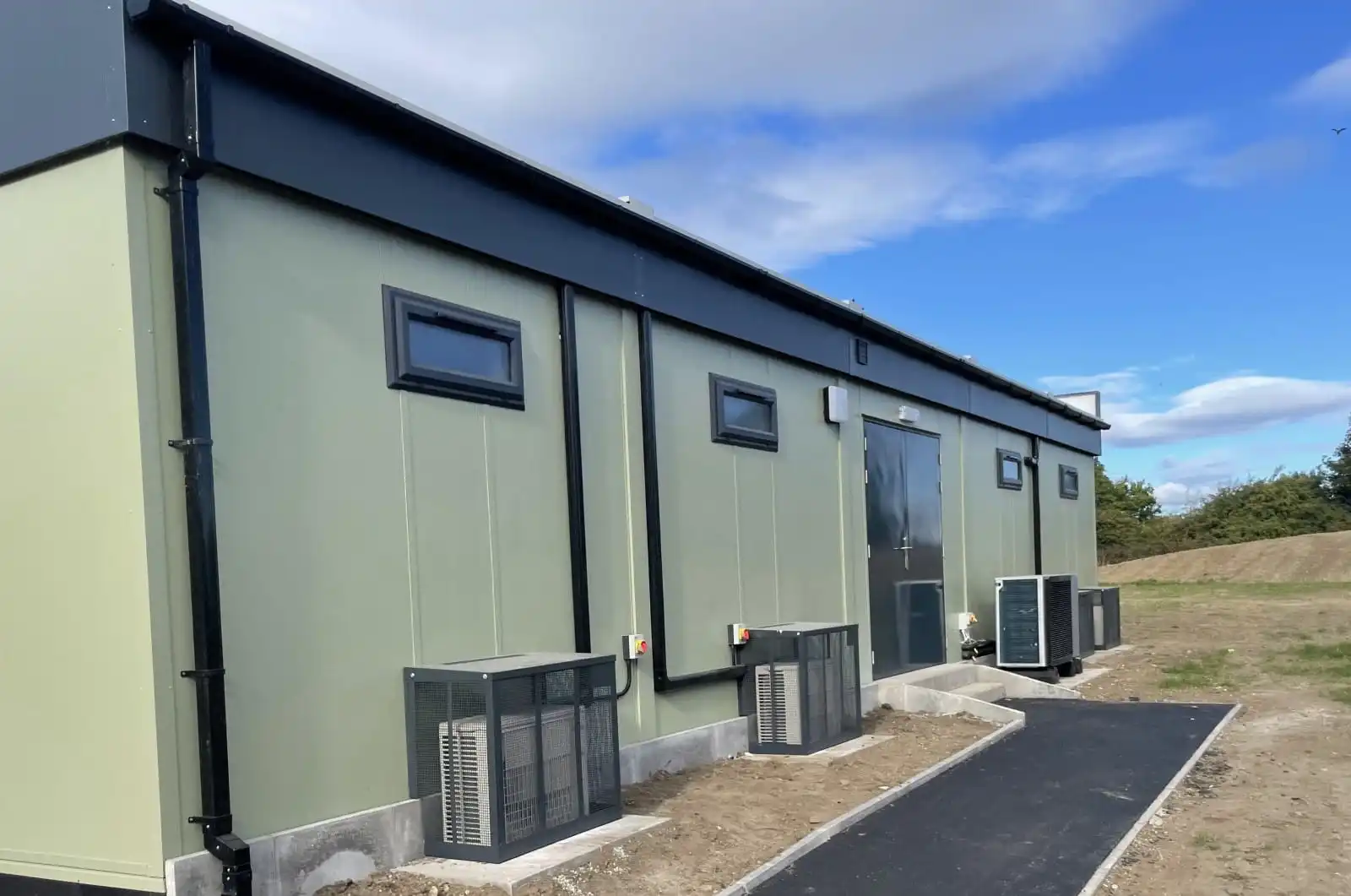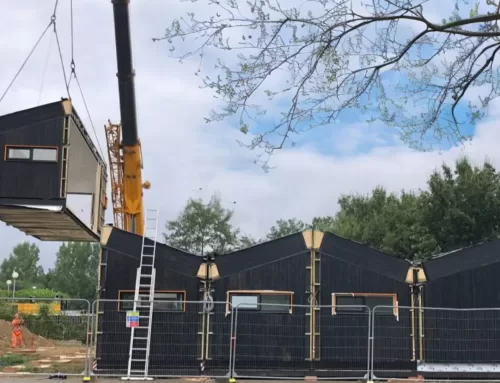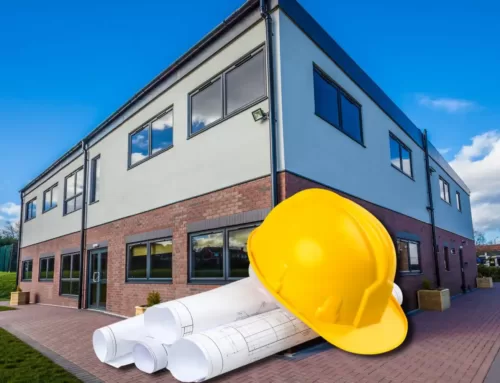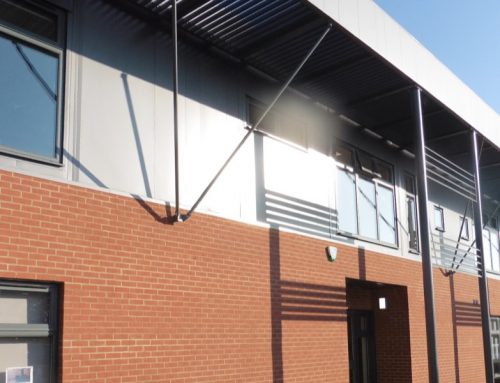Is Modular Construction Sustainable?
Yes, modular construction is a sustainable method of building as modules can be dismantled, recycled and repurposed once they are no longer required.
What Makes Modular Construction Sustainable?
To understand what makes modular construction eco-friendly, we have to look at the prefabrication of these modules.
After the design, the build process begins with manufacturing the modules off-site. Next, the modules are transported and connected on-site to form the designed building. They have become increasingly popular due to their build speed and cost-effectiveness.
But mainly, they fulfil a rightful brief of sustainability – something that is paramount in many construction projects today. They can be part of a permanent or temporary requirement. Still, their versatility means that should you need to make modifications; you have the flexibility to reconfigure them as you need.
What Are The Environmental Benefits Of Modular Construction?
The rise in popularity of modular construction has come down to its environmental benefits. Modular builds have a proven record of being more energy-efficient, creating less waste and increasing the use of sustainable materials. There is also a reduction in the carbon footprint of the building as most of the construction is done in a specialised warehouse.
Traditional Construction Methods Vs Prefabricated Construction
The key issues with using more traditional construction methods are that they can take up to 50% longer to complete. You eliminate the weather factor when using modular buildings because you will be doing most of your construction in a manufacturing warehouse. Some traditional construction methods use high-energy techniques – this is not the case with modular construction. The amount of waste from a traditional construction site is much higher, and when demolition is factored in, this increases.
Recycling Modular Buildings for Sustainability
Whilst refurb and recycling materials in traditional construction are problematic and can be expensive, modular building facilitates upcycling due to the way units are built individually and can be easily assembled or disassembled.
The use of recycled materials in modular construction is the highest in the construction industry. Modular units are made to measure which reduces waste during the manufacturing process, and the amount of waste created on-site.
Modular components are also said to be ‘designed for deconstruction’, e.g. they can be put in or taken out of a building and used elsewhere. This lends itself well to recycling materials, as the components are much easier to remove and reuse than traditional buildings.
Building modules can be manufactured in line with the completion of groundworks, significantly reducing the project timescale and the overall impact on a site environment. This means less traffic and journeys to a building site and shorter build times.
The Flexibility Of Modular Recycling & Repurposing
The modular approach brings a whole host of benefits for building clients: modular construction companies can repurpose any of their existing stock to suit new client needs, with each element being easy to add, remove or swap out. As components are modular, it also means that they can be rented or sold. For example, it is becoming more common for modular building companies to rent out smaller units. Interiors can be renovated to new layouts with ease, and exteriors can be reclad, painted or tailored to suit clients’ aesthetics.
This flexible approach to building lends itself well to upcycling and offers a solution for building companies to overcome the resource and supply chain issues they face at present. It also presents a sustainable and ecologically friendly way to approach building in the future.
At MPH building systems, our recycled modular buildings offer a low-cost, fast-track, eco-friendly option, adaptable for many uses and available for immediate delivery to site. If you’d like to speak to one of our team, get in touch today.
How Do You Repurpose A Modular Building?
Modular construction is focused on reducing, reusing and recycling materials throughout the process.
Much of the module unit can now be built using recycled glass, steel and wood. Any materials meant for one project do not need to be discarded; they can be reused in future projects, reducing the need for purchasing more. Then, the parts can be recycled when deconstructed, which can be done as quickly as constructed.
Modular buildings are not only permanent but can be temporary and relocatable. They can be moved from site to site. The environmental benefit of this is that it doesn’t create more waste by demolishing each building when moving from site to site, and you can reuse the same module.
Overall Modular Buildings are eco-friendly. We know this from experience – these prefabricated buildings can be modified and reused. This makes them more sustainable than traditional construction methods.
Contact us today to chat with our friendly team of experts if you’d like to learn more about our refurbished modular buildings for various industries.










